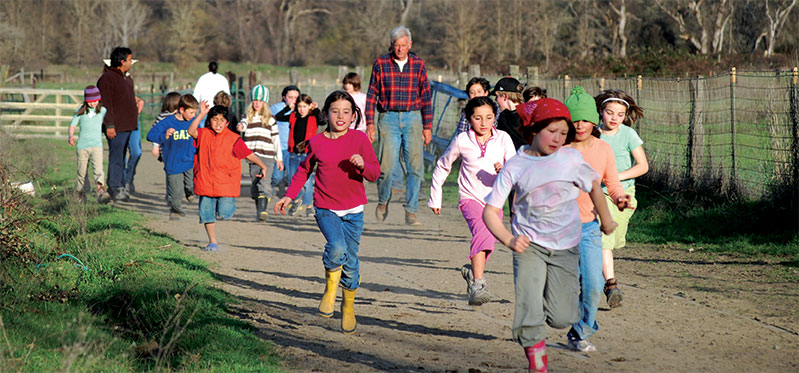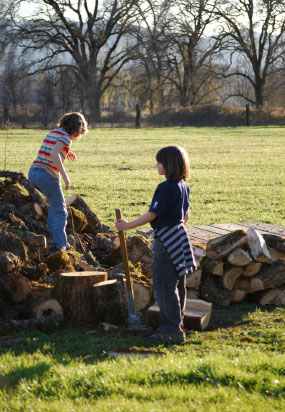Typically, the children arrive Tuesday afternoon, stay three nights on the farm, and leave Friday morning. The students are accompanied by their teacher and several parents, usually one adult for every 4 to 5 children. They sleep in tents or in the barn. While their stay may not be luxurious, the children have a visit filled with firsthand experiences of the land and farming life that they will not soon forget.
Students’ days are full with many activities. Since we farm with horses, we introduce them to teamwork by having them become horses themselves and pull a sled. We c arry that sense of teamwork through
their entire stay as they do farming projects and prepare and clean up the meals. What we have learned over the years working with all these young folks is that so few of them have hands-on skills to apply to real life, and we want to provide as many opportunities as possible for them to develop those skills and a sense of the meaning of practical, productive work.
From the time the schoolchildren arrive and through the course of their stay, a minimum of one principle farmer (Stephen) and 3 to 4 apprentices work with them steadily in structured morning and afternoon practical sessions. Gloria functions as overall project coordinator, carrying out pre-visit coordination and organization, as well as overseeing the logistics of the visits as the y are going on—food preparation, coordination of adult volunteers accompanying the groups, etc.
In advance of each of the school visits, we meet with the apprentices to plan activities, assign activity leaders, and prepare in advance of the students’ arrival. The preparation can include such tasks as pre-irrigation for plowing, acquiring and organizing building materials to be used in projects, and organizing tools. Throughout the course of the school visit we discuss the general goals, approaches, and educational techniques for working with different age groups as well as continue to work with the apprentices on how to lead their specific projects.



